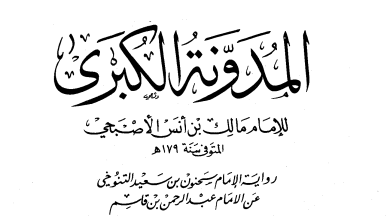Differences between al-Albani, Ibn ‘Uthaymin and Ibn Baz – In Fiqh and Aqida
This is a compilation in over 800 pages highlighting both the minor and major differences of opinion that came about from the neo-ijtihadic positions of the three most well known proponents of the modern day “Salafi” sect – namely, the three recent father figures of the movement: Nasir al-Albani (d.1999), Muhammad ibn Salih al-‘Uthaymin (d.2001) and ‘Abd al-‘Aziz ibn Baz (d.1999). All three were (and still are) held in high regard by most forms of contemporary “Salafism”, which itself is a movement that has copious subdivisions and rival factions – with conflict ridden disunity ubiquitously present amongst themselves. They started out (and factions among them still continue) calling for the abandonment of the Four Sunni Schools of Islamic Law, namely, the Hanafi, Maliki, Shafi’i and Hanbali Madhhabs; all of which emanated from the tangible time of the pious predecessors (al-Salaf al-Salihin), and continue to flourish vibrantly right up till this very day, all over the Muslim world, by the decree of Allah ta’ala. Indeed, most Sunni scholars and lay people are still attached to these acknowledged Madhhabs that have stood via the test of time. Most scholars, especially, since the post-Salaf period have also been linked to the adherence of these recognised Sunni Madhhabs.
Their call to abandon taqlid, which is in reality the following of, and placing trust in the qualified scholarship of the leading and recognised Madhhabs (and not simply “blind following” of random or incompetent individuals), has lead them to use the slogan: “A return to the Qur’an and the ‘authentic’ Sunna”. This catchphrase may sound alluring to the laity who have not generally had the intense training to comprehend how major scholars of the past and present came to derive rulings (ijtihad) from the Sources of the Shari’a (Qur’an, Sunna, Ijma’ and Qiyas), or the precise and nuanced methodology (Usul) utilised by the most elite of scholars (Mujtahid Imams). Indeed, a little thought would have lead the sound mind to conclude that all the Mujtahid Imams, and their leading followers, not only had full access to the Qur’an and Sunna over time, but also had the acknowledged, qualified scholarship, academic rigour, and piety to extract rulings from the named Sources of Shari’a.
The question is – ‘Was there ever a need to make an endeavour to try and reinvent the wheel, when more than 1200 years have passed since the inception of the leading Sunni Madhhabs with their affiliated scholarship, century after century?’ The opponents of the Sunni Madhhabs imprudently contend that this is not only a “good idea”, but something which is a must and an absolute necessity. Such a mentality thus leads to the blustering call to abandon taqlid of all the recognised Madhhabs. The natural and thought provoking question that arises for the advocates of this incongruous call is – ‘Why do the very authorities you look up to so much – without much analytical verification (tahqiq) on an individual basis – have such a colossal amount of divergence of opinion (ikhtilaf) between themselves, if they are the major references and authorities who promoted this very call of adhering to the “Qur’an and Sunna” in their time?!’
The work below is by proponents linked to Salafism and so it is to be regarded as being an accurate representation of where and why these three named authorities of theirs differed on many legal questions (masa’il) as well as some matters linked to Islamic beliefs (‘aqa’id). The very fact that these individuals had such a great number of differences in extracting rulings from the Sources of the Shari’a should lead to alarm bells ringing in the inquisitive readers’ minds, for the simple reason that, it has never been possible to unite all Muslim scholars on just one specific, unified opinion, on every single legal question that has ever arisen in the past, or will be in need of answering in the future. This call to reject the Sunni Madhhabs and attempt to reformulate all opinions on the mantra of following the “strongest opinion” as propounded by contemporaries attached to “Salafism” is thus not only a fallacy but an abysmal failure on their part, and it is in effect a call that was non-existent, even in the time of the pious Imams from the generation of the Salaf as-Salihin. Those who are keen to see how and why the major Imams of early times themselves came to derive legal rulings and what lead to agreement or disagreement may consult the work known as Bidayatul Mujtahid wa Nihaytul Muqtasid by Qadi ibn Rushd (d. 595 AH). The link provided for the Bidayatul-Mujtahid is to the English, printed edition. One may wish to read the English rendition of the Bidayatul Mujtahid as uploaded in the public domain by others:
Bidayatul-Mujtahid: The Distinguished Jurist’s Primer (vol. 1)
Bidayatul-Mujtahid: The Distinguished Jurist’s Primer ( vol. 2)
The work showing the vast array of differences between the three named, contemporary head-figures of “Salafism” is called – al-Ijaz fi ba’dh ma Ikhtalafa fihi al-Albani wa ibn ‘Uthaymin wa ibn Baz (A Brief Summary with regards to some of that in which al-Albani, ibn ‘Uthaymin, and ibn Baz differed).
Front cover:
Download link
Read online:







Assalamu’alaykum
Is there a copy of this in English?
Jzk
Rafiq
Wa alaikum salam
No.
Do you recommend “The Refutation of him who attributes direction to Allah” by Ibn
Jahbal Al- Kilabi /Dr Gibril Haddad?
I need to know more about this topic and this seems to be the only book available.
Yes. This is the most detailed and reliable work on this matter at hand.
Assalam o Alaikum
Brother can you tell me the name of the original Arabic book by by Ibn Jahbal Al- Kilabi which is translated into english by the name “The Refutation of him who attributes direction to Allah” . JazakALLAH
Wa alaikum salam
The original work by Imam ibn Jahbal was published by his younger contemporary – Imam Tajuddin al-Subki in his Tabaqat al-Shafiyya al-Kubra. You may see the title and download the risala in the following link – http://www.aslein.net/showthread.php?t=2181&s=afae191b80ee8d3a6dcd25964f38097f
Wassalam
Assalamu alaikum wa rehmatullahi wa barakatuhu.
I wish brother if it had an English or Roman urdu version.
as the majority of plp cant read urdu.
if u find anything on this book in english or maybe in roman hindi.
pls forward on the email.
JazakAllah khyran kaseera.
Assalamualaikum,
There is nothing surprising in this. I hope at least the Ummah especially the educated youth, understands why it is necessary to follow one Imam in conflicting matters.
It’s very straight forward. All the four Imams were present in the best of the eras and have been accepted by the Ummah without any issues for centuries. But people tend to follow the research of today’s scholars who provide their own personal opinion based on their own understanding and they use the words “Quran and Sahih Hadith” which are appealing to the masses. This is the reason there is no consensus among Salafi Scholars.
This is the reason we say, “If you not follow one, you have to follow many”.
Allah knows the Best
Salam – Maybe it’s better if there isn’t a English copy of this because if the wahabis get a hold of the English copy I can imagine them being in turbo gear in spamming this website
Can’t read Arabic.
Here is a translation:
https://www.amazon.com/Who-Right-According-Quran-Sunnah/dp/1520342098
Are you sure that’s a translation of the book posted on this page? The Amazon description of the book you posted says that it’s 58 pages, which is quite far off the 800+ pages of this book.
It is not a full translation but consists of a few selected examples.
It contains translations for 139 out of about 160 questions and answers. The evidences used by each Scholar is not translated.